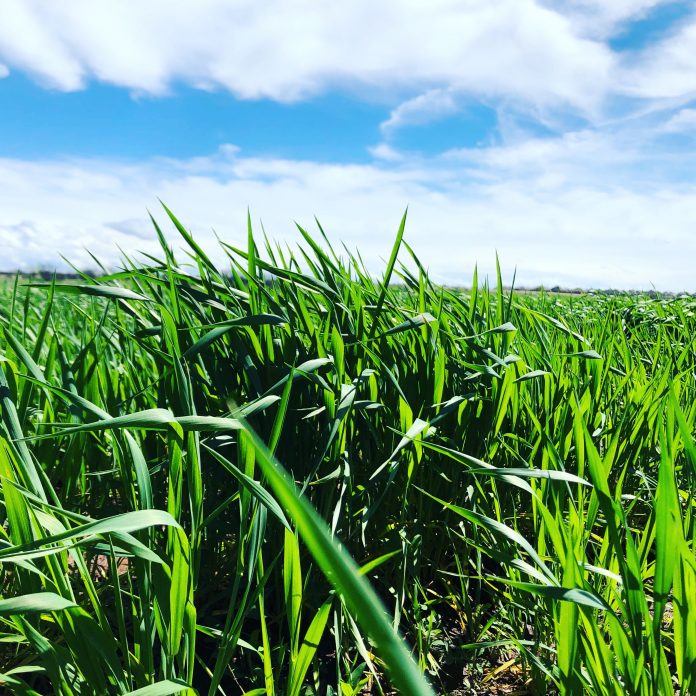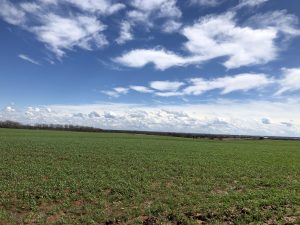
While farmers working acres of wheat or spending more time around animals than people may have less contact with coronavirus, the economic impact of the COVID-19 pandemic is felt in the agricultural community, said Jerry Lingo, a Canadian County wheat farmer.
The local wheat crop, meanwhile, is looking as healthy as ever this year, he said. After warm and dry conditions in December and January, and less than an inch of rain in February, the recent March rains have resulted in green fields of growing stalks.
Yukon has had 4.3 inches of rain so far in March and El Reno has had 3.21 inches, according to the Oklahoma Mesonet Network website.
Lingo said his rain gauge at his Diamond L Farms location east of El Reno, has shown 6 inches of rain since Friday, March 13.
“Our wheat looks as well as any wheat in the county,” Lingo said.

Wheat prices had fallen in recent times and then made a slight comeback before the coronavirus affected the global economy, he said.
“Wheat has not been a real profitable venture,” Lingo said.
The price of wheat is about $5 a bushel currently. Lingo said the price needs to be about $7 a bushel or more to be profitable.
The pandemic has affected exports of grain worldwide, and prices for beef have dropped as well, he said. The workload for farmers has not dropped off, though, he said.
“We have things we have to do every day,” Lingo said. “We are not dealing with offices and large crowds of people and we are kind of isolated on farms, but we happen to be affected by the economy, all ag’ markets are falling,” Lingo said.
In recent years, planting winter canola has been profitable, but prices have also dropped for canola and the expense is more with canola than winter wheat, he said.
Cattle can graze on wheat but won’t graze on canola, he said. Canola is a good crop for rotations, he said.
Lingo said farmers will take precautions with all aspects of their operations as the daily health situations change.
“We’re not living in fear either. We have to take care of our animals and crops,” Lingo said.





